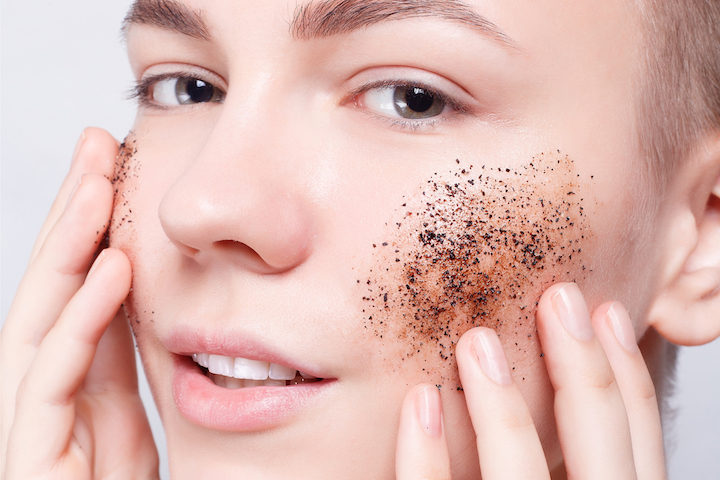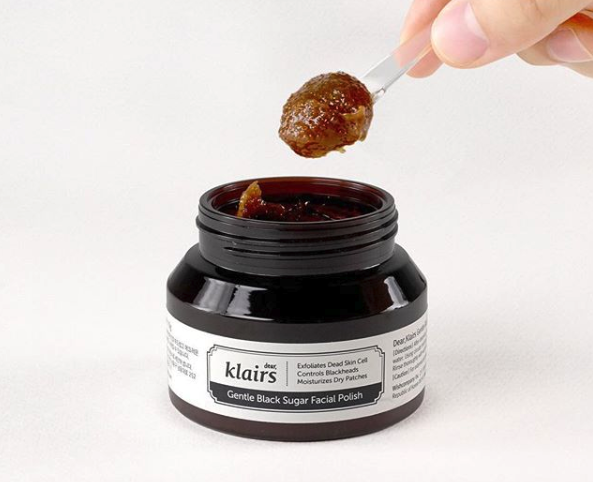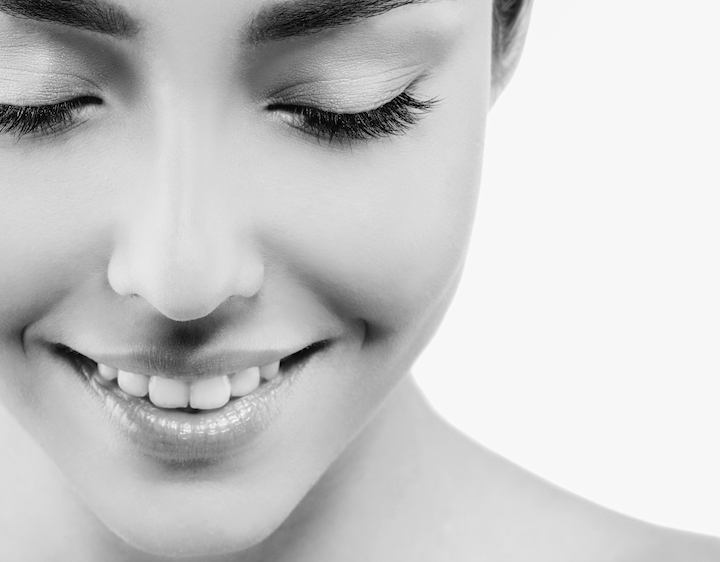Physical exfoliation has gotten a bad rap lately, but it’s still one of the few things that can give you instantly glowing skin — as long as you do it correctly. Here, we debunk some physical exfoliation myths so that you can get glowing the right way.
Physical exfoliation has gotten a bad rap over the years. I know we all shun St. Ives Apricot scrub, but that was my very first big girl skincare purchase. It signaled the start of my beauty obsession — I bought something that had been recommended to me by Allure magazine. As a teenager, that mattered! And not to mention the joy I got from feeling those walnut shells slide across my face.
In Korea, I moved on to using the Skinfood Black Sugar Scrub, pretty much one of the most iconic facial scrubs of all time. I still get all tingly inside thinking about it. It’s one of the products that introduced me to the beautiful world of K-beauty, and the reason why I’m here writing this now. Like I said, ICONIC.
But now if you mention using a physical exfoliator (aka a scrub), people will legit lose their minds. “YOU DO WHAT?!” they gasp and yell. Everyone has moved on to using chemical exfoliation, which is great, but I think physical exfoliation has gotten a bad rap over the years. It’s not as bad as everyone makes it out to be — if you’re smart about using them correctly. Let’s cover some ground and break down some physical exfoliation myths, shall we?

The difference between chemical and physical exfoliation
Physical exfoliation is when you use a tool (Clarisonic, Foreo), a particle from an ingredient (nut shells, sugar, salt), or a professional treatment (microdermabrasion, dermaplaning) to physically remove dead skin and debris from your face. They simply improve the look and feel of your skin from the surface of your skin.
Chemical exfoliants (like AHAs, PHAs, and BHAs) work by penetrating the surface of the skin to remove debris and encourage cell turnover.
Myth #1: Using a physical exfoliator will completely damage my skin with microtears, allowing bacteria to flourish and cause acne
I’m not exactly sure how this myth got started, but it’s the one that is the most pervasive and the one that’s the most misunderstood. The thought is that by using any type of scrub or cleansing brush, you’ll damage the outer layer of skin with microtears, which can cause bacteria to thrive, and you’ll have a whole host of problems, including acne.

The truth is, SOME types of physical exfoliation CAN cause microtears. As a rule, you want to avoid any scrub made from nut shells, such as walnut and apricot. These shells are much too large and scratchy to be applied to your face, and they definitely can cause problems. What should you use? Sugar. Sugar is small and gentle enough to not cause any microtears.
And remember, you don’t need to aggressively rub your skin when using a scrub; just a gentle motion using your fingertips will do the trick! Plant cellulose scrubs (the ones that are called peeling scrubs or gels LINK in Korea) are also another safe, effective physical exfoliation option.
Myth #2: You can scrub away those blackheads
I remember being young and seeing scrub products marketed specifically towards getting rid of blackheads, and the lie detector test proved that was a lie. Like I mentioned earlier, physical exfoliation only helps improve the very top layer of skin. Blackheads, on the other hand, are debris, dirt, and dead skin cells that are “trapped” in the skin. BHAs are your best bet in this situation, as they can penetrate the skin to unglue all the stuck grossness. Sadly, no amount of scrubbing is going to remove them. Get yourself a BHA (pads or a serum like the COSRX BHA Liquid) and live your best life.

Myth #3: I need to scrub my skin every day to make sure it’s clean
Back in my youth, I made the mistake of using a facial scrub like a cleanser. Thank god I have learned from my mistake. A cleanser and a facial scrub are not one in the same — they aren’t even in the same category. Scrubs are used, at most, two times a week as a little polish and shine for the skin. You know, maybe before a big date or event where you want to look just a little more glowy than usual? That’s when you pull out the scrubs. You definitely don’t need to use them every day.
Have you fallen prey to any physical exfoliation myths? Do you use a physical exfoliator? Which one is your favorite? Let me know in the comments!
Loading...